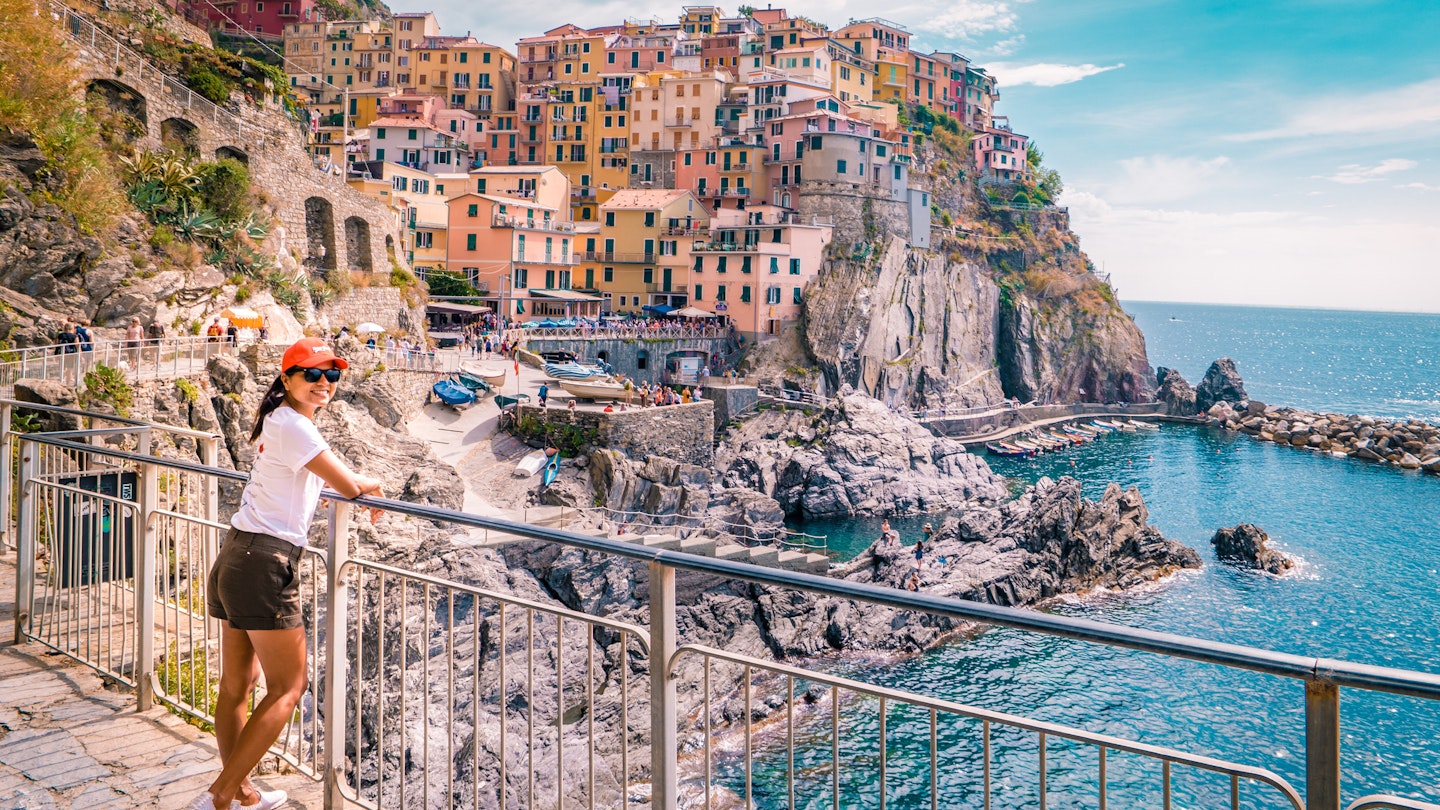Traveling on a Budget in Italy: Essential Tips
Whether you’re seeking a Mediterranean escape, a road trip through hilly wine regions, or an awe-inspiring art tour through medieval cities, Italy will not disappoint.
However, with a long list of attractions—whether they’re culinary, scenic, architectural, historic, or cultural—planning a budget journey through Italy can be tricky. Prices often vary from season to season, and also from cities to the countryside and from north to south. Some regions boast a well-developed tourist infrastructure with an endless array of ticketed activities and services that cater to every budget, while other less-visited areas offer many opportunities for low-cost discovery.
Here’s your insider guide to Italian money matters, packed with top tips to help you save a few euros while traveling through the 20 diverse regions of this beautiful peninsula.
Fly into Secondary Airports or Enter Italy Overland
Most visitors will fly into Italy from abroad. Landing in secondary airports served by low-cost airlines can significantly reduce your travel costs. For example, you could fly into Bergamo to visit Milan, or check flights to Pisa or Bologna to reach Florence. Low-cost carriers like Ryanair, WizzAir, EasyJet, and Vueling offer multiple options.
However, flying isn’t the only way to enter Italy. A new high-velocity rail line connecting Paris to Milan and Turin opened in 2021, allowing travel with Trenitalia trains from the French capital to Italy.
Shoulder Season is the Best Season
Traveling to Italy in May and June or in September and October strikes the perfect balance between pleasant weather, lower costs, and available activities. The peak holiday season runs from July to August, when prices soar, temperatures skyrocket, and beaches fill up. Therefore, visiting before or after this period increases your chances of enjoying mild temperatures, finding deals, and avoiding overcrowded attractions.
Ditch the Car and Use Public Transport
While renting a vehicle may provide access to rural and mountainous areas, public transportation effectively connects most cities and offers an affordable option for getting around. High-speed trains are quick but can be costly; regional trains tend to be more budget-friendly, costing less than half the price of their faster counterparts. Buses are the cheapest form of transit, though they may sacrifice comfort.
For instance, traveling from Rome to Florence next week via a high-speed train may cost you approximately €45, while a regional train could be around €23, and a Flixbus coach can be as low as €7.
Discounts for Train Trips
High-speed rail travel is often the most expensive public transport option, but this isn’t always the case. Booking your seat weeks in advance can yield reduced price tickets for both Italo and Trenitalia fast trains.
If you plan on traveling extensively by train, consider the Trenitalia Pass, which allows multiple days of travel across Italy starting from €129. Special offers for same-day return tickets and weekend return tickets are also available.
Look for Lunch Deals in Trattorias
Street food is an excellent way to reduce food costs in Italy, but you can enjoy dining in local restaurants while saving money. Many trattorias and osterias across Italy offer fixed-price lunch menus with a pasta dish, a second course, water, and wine for under €15. Keep an eye out for signs advertising a menù del giorno (menu of the day).
Stand Up for Your Coffee
Italians frequently stop at cafés throughout the day for a caffeine boost. The espresso ritual remains consistent across the country—typically enjoyed standing at the bar. Note that sitting down for coffee in many larger cities can incur a service fee.
Avoid Bottled Water
In Italy, tap water is drinkable, so it’s wise to carry a refillable bottle to save money and reduce single-use plastics. This is particularly easy in Rome, which is home to over 5,000 drinking fountains known as nasoni (big noses).
Low Season Art Tours
Italy’s rich art heritage attracts tourists year-round, but winter visits are less crowded. Many art institutions offer discounted tickets during the low season. For instance, entry to Florence’s Uffizi—one of Italy’s most visited museums—decreases from €25 to €12 between November and February.
Explore Churches for Art
Museum entry fees can add up, but world-class art isn’t confined to galleries. Italy features thousands of churches housing exceptional icons of the nation’s cultural heritage, often free of charge. Artists like Caravaggio, Raffaello, and Botticelli can often be found inside churches in art cities like Rome and Florence.
Seek Free Beaches
In Italy, many public beaches are managed by businesses that charge for amenities like umbrellas and deckchairs, with fees ranging from €15 to €40 daily. To skip these costs, ask for the nearest spiaggia libera (free beach), where access is free.
Long-Distance Pilgrimage Routes
One of the most memorable and cost-effective activities in Italy is hiking along historic pilgrimage routes like the Via Francigena, which spans from Canterbury to Southern Italy. It’s possible to sleep in monasteries and hostels catering to modern-day pilgrims for a few euros per night.
Daily Costs Overview
- Espresso coffee: €1.20
- Bed in a hostel dorm: €25 to €50 per night
- Double room in an agriturismo (farm stay): from €80 per night
- High-speed train ticket from Florence to Milan: €56
- Urban bus or tram ride: €1.50
- Glass of Chianti wine: €5 to €8
- Dinner for two: from €50
- Margherita pizza: €6 to €8
- Aperitivo cocktail: €5 to €10
- Sandwich: €5
- Car rental: from €50 per day
- One liter of petrol: €1.80
- Bicycle hire: €12 per day
- Museum tickets: €10 to €20
Your daily expenditure in Italy will fluctuate depending on your travel style, choice of meals, and activities. However, budgeting at least €130 per day is advisable if you include major attractions in your itinerary. Nevertheless, you can effectively cut costs with the provided tips.




